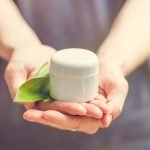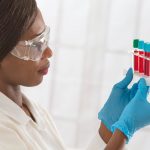Could Our Fat Have Immunological Function?
Node Smith, ND
Droplets of fat inside our cells are helping the body’s own defense system fight back against infection, University of Queensland researchers have discovered.
The international collaboration between UQ Institute for Molecular Bioscience researchers Professor Robert Parton and Professor Matt Sweet, and the University of Barcelona’s Professor Albert Pol found that these fat droplets are both a food source and weapon against bacterial invaders.
Fatty droplets involved in the battle between the pathogens and our cells
“It was previously thought that bacteria were merely using the lipid droplets to feed on, but we have discovered these fatty droplets are involved in the battle between the pathogens and our cells,” Professor Parton said.
“Fat is part of the cell’s arsenal — cells manufacture toxic proteins, package them into the lipid droplets, then fire them at the intruders.
“This is a new way that cells are protecting themselves, using fats as a covert weapon, and giving us new insights into ways of fighting infection.”
Researchers are determined to find alternative ways to fight infection
With antibiotic-resistant superbugs on the rise, researchers are determined to find alternative ways to fight infection.
One possibility is ramping up the body’s natural defenses.
“We showed that upon infection of white blood cells called macrophages, lipid droplets move to the part of the macrophage where the bacteria are present,” Professor Sweet said.
The bacterial infection also changed the way that white blood cells used energy.
“Lipid droplets can be used as a fuel source for mitochondria when there aren’t enough other nutrients,” Professor Sweet said.
“During an infection, lipid droplets move away from the mitochondria and attack the bacteria instead, altering metabolism of the cell.”
Cell biologist Professor Parton was inspired to continue this research after the phenomenon was seen in fruit flies
“Most people thought the lipid droplets were ‘blobs of fat’, only useful for energy storage but now we are seeing that they act as metabolic switches in the cell, defend against infection and much more — there are now entire scientific conferences of researchers working on them,” he said.
“Our next step is to find out how the lipid droplets target the bacteria.
“By understanding the body’s natural defenses, we can develop new therapies that don’t rely on antibiotics to fight drug-resistant infections.”
1. Douglas R. Green. Immiscible immunity. Science, 2020 DOI: 10.1126/science.abe7891

Node Smith, ND, is a naturopathic physician in Humboldt, Saskatchewan and associate editor and continuing education director for NDNR. His mission is serving relationships that support the process of transformation, and that ultimately lead to healthier people, businesses and communities. His primary therapeutic tools include counselling, homeopathy, diet and the use of cold water combined with exercise. Node considers health to be a reflection of the relationships a person or a business has with themselves, with God and with those around them. In order to cure disease and to heal, these relationships must be specifically considered. Node has worked intimately with many groups and organizations within the naturopathic profession, and helped found the non-profit, Association for Naturopathic Revitalization (ANR), which works to promote and facilitate experiential education in vitalism.









